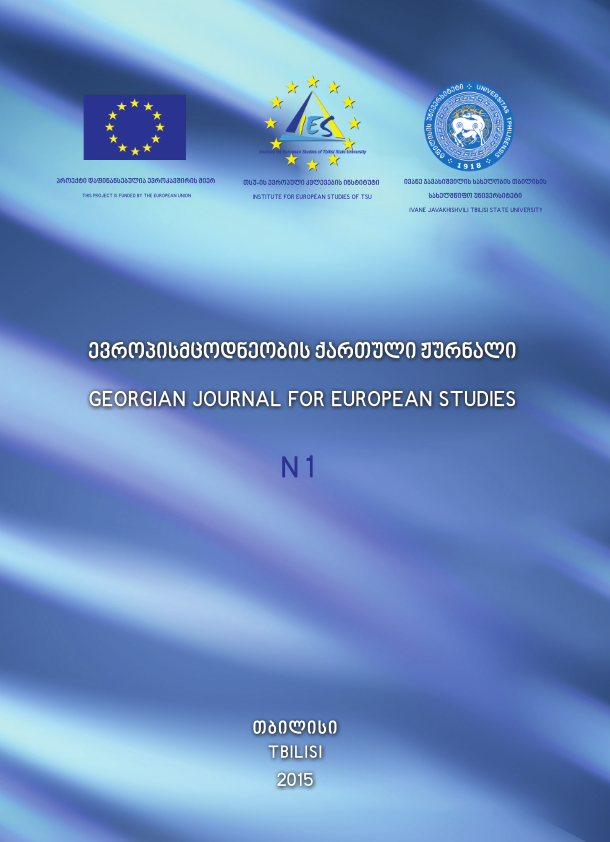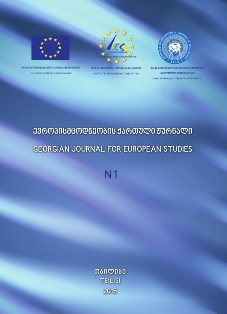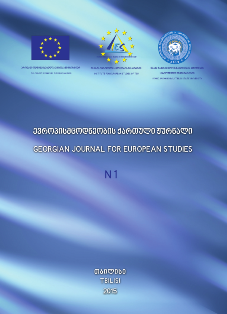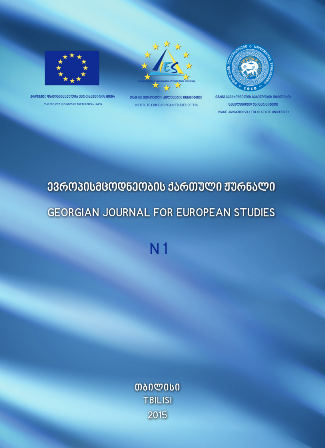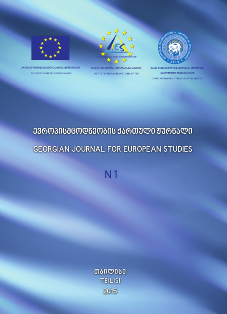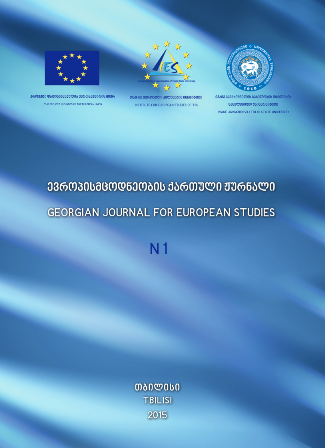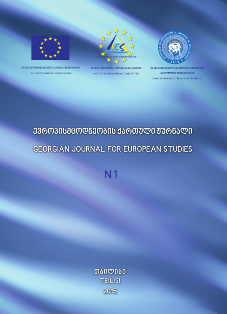About the Journal
ISSN 2346-7827
The Institute for European Studies (IES) at Tbilisi State University, established in 2007 with support from the European Union through its local Delegation to Georgia under the TACIS project, has become a leading center for European Studies in the Eastern Partnership Region. The institute’s founding initiative was to launch the first interdisciplinary, interfaculty, English-taught Master’s Programme in European Studies in the region. This effort was realized with the collaboration of esteemed EU professors from the University Pierre Mendés France of Grenoble (France), the Centre for Public Reforms of Innsbruck (Austria), and the Panteion University of Social and Political Sciences of Athens (Greece). These partners played a crucial role in implementing student-centered teaching and learning methods, enabling the Master’s Programme in European Studies (MAES) to meet European quality standards in accordance with the Bologna Process.
In 2011, the program received its first accreditation from the Ministry of Education and Science of Georgia, gaining significant appeal among both Georgian and international students. As the IES evolved, it became a hub for prominent academics and policymakers involved in EU-Georgia relations, setting the stage for its transformation into a center of excellence. This growth included expanding research activities and developing an interdisciplinary, structured Doctoral programme in European Studies, supported once again by the EU under the ENPI project through its Delegation to Georgia.
Building on the success of these initiatives, the IES achieved another milestone with the implementation of the EU's Grant Project: "Establishment of Interdisciplinary doctoral Program in European Studies at Ivane Javakhishvili Tbilisi State University."
The experts of the following universities participated in the establishment of the Doctoral programme in European Studies: Trinity college Dublin, University of Ljubljana, Central European University, London school of Economics, University of Graz.
After the successful accreditation of the Doctoral porgramme, the IES founded the interdisciplinary scientific issue- Georgian Journal for European Studies in 2014, with the first issue published in 2015 (ISSN 2346-7827). This bilingual scientific Journal further solidified the IES’s role as a leader in the field, providing a platform for scholarly discourse and research in European Studies.
Rooted in the four faculties of Tbilisi State University—Law, Economics and Business, Social and Political Sciences, and Humanities—the IES has capitalized on partnerships with both local and international academic circles and the Committee on European Integration of the Parliament of Georgia. These collaborations have propelled the institute to new heights, enabling the realization of numerous international and local projects.
The IES vision, "Embrace Europe in Georgia," encapsulates a dual commitment: to disseminate European values throughout Georgian society and to contribute to the intellectual development of the country by offering high-quality education aligned with European standards. This vision supports the Georgian government’s efforts to build human capacity for deeper integration into the EU.
Guided by this vision, the IES is determined to evolve into a Centre of Excellence in the Eastern Partnership region. It aims to become a reliable partner of Western academic institutions, establish itself as an expert in European Studies research, and align with EU standards. The institute is also dedicated to fostering a continuous flow of qualified experts and facilitating public dialogue within Georgian society, thereby transforming the EU-Georgia discourse into effective policymaking.
Current Issue

European Union: Politics and Policies
Economic Integration of the EU
Migration and European Union
Human Rights and Democracy in European Union
Welcome to the latest edition of Georgian Journal for European Studies.

